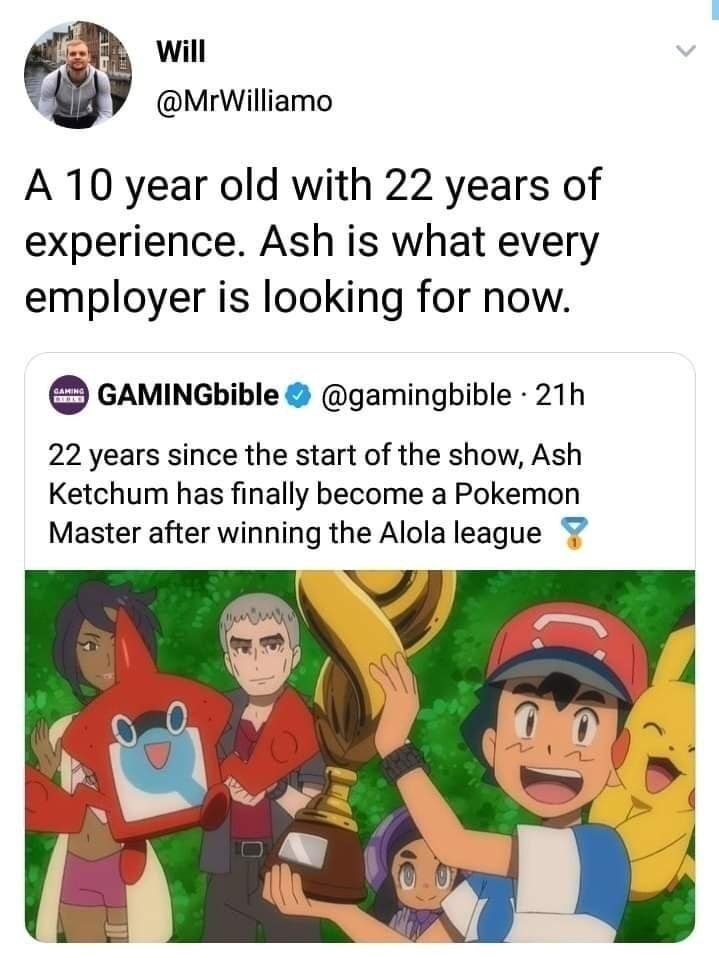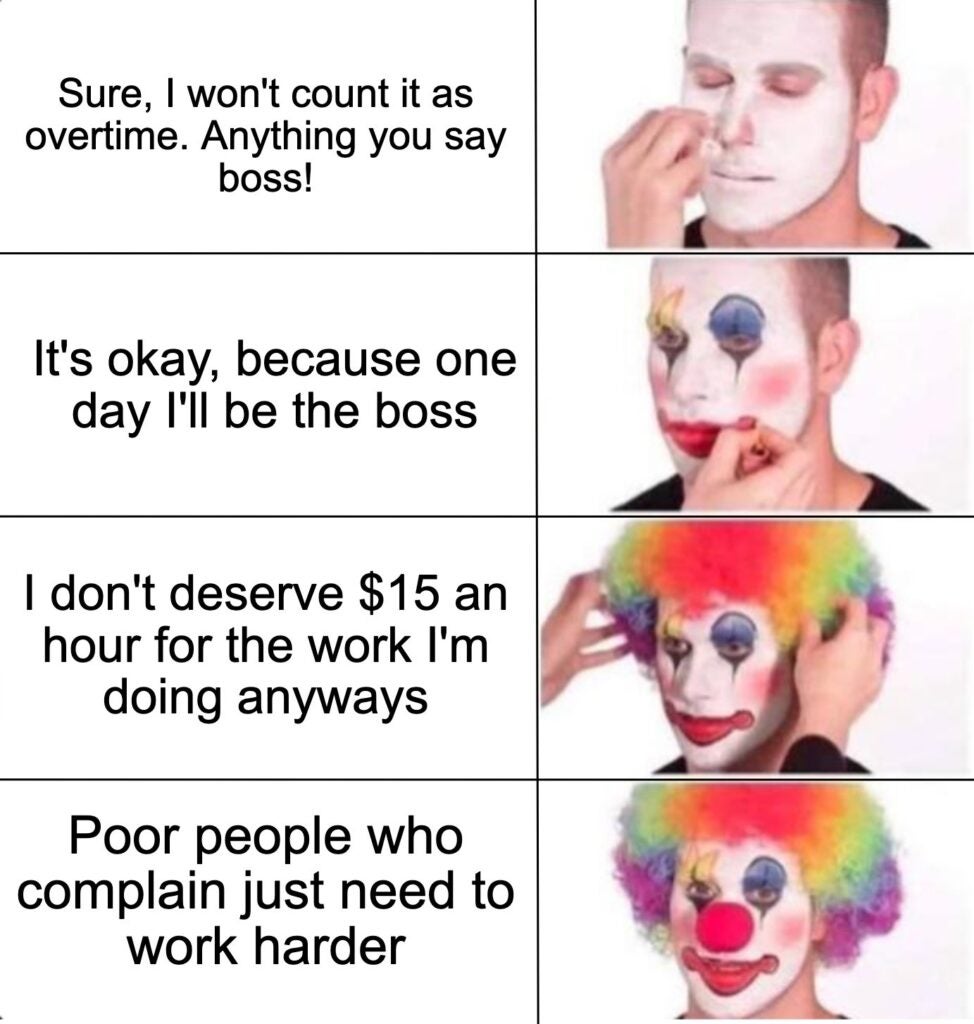Disclaimer: In Real Life is a platform for everyday people to share their experiences and voices. All articles are personal stories and do not necessarily echo In Real Life’s sentiments.
Before everyone began working from home with their kids in school on a laptop, there was a time when the job scope described what you did in the office for 40 hours each week.
Today, the job description is more like a series of vague, nice-sounding guidelines that make you wonder: What does this really mean?
Here are a few examples of them:
“Salary range: RM1500 Basic+commissions”
“We treat each other like family here”
“Education requirements: Bachelor’s degree with 5 years Minimum Experience”
“Able to wear multiple hats”
“Young and fun office environment”
“Can work anywhere and anytime”
“Other ad-hoc duties as assigned”
That doesn’t sound too bad, right? Or is it? Well, here’s what that job description says, versus what it actually means.
1. “Education Requirements: Bachelor’s Degree with 5 years Minimum Experience”

Having a Bachelor’s Degree once meant something.
These days, a Bachelor’s degree is the required minimum, and a Master’s Degree will get you slightly higher base pay starting out.
You’d be lucky if a Bachelor’s qualifies you for a minimum-wage, 40-hour workweek. We’ve got both Bachelor and Masters degree holders driving for Grab and delivering with Foodpanda… so even that’s not set in stone.
If you have a specialized Bachelor’s degree, then you get the same with the prospect of unpaid overtime. That overtime you are expected to do is to “demonstrate” your value, worth, and loyalty to the company.
Spare me the platitudes about “proving your worth” and “paying your dues.” If the salary isn’t enough for me to make a living, you are definitely not going to get more than the contracted 40 hours a week.
2. “Salary Range: RM1500 Basic+ Commissions”

If the salary isn’t on the job advert, that’s one thing, but if you can’t get a straight answer about compensation, watch out.
Anything that says you can earn between “X” and “Y” dollars per hour or “you determine your income” means it’s probably going to be 100% commission-based, without that fixed basic. If you don’t sell, then you make nothing!
This means that there is no fixed salary underpinning things. You’re basically working for free as part of a door-to-door sales force, pounding the pavement and literally begging for people to buy a consumer product.
That product could be anything from household cleaning products to cosmetics or water pumps, purifiers, and filters. Whatever it is, odds are you are never going to sell enough to make it right.
I’ve worked at MLMs before — Avon, Melaleuca, Cosway. All 100% commission-based. The least cult-like of the lot is Melaleuca. For one thing, their products (household cleaning stuff at least) really DOES work.
That being said, if there is a fixed salary that tops up with a commission, it might be a pretty good deal, because you’ve got a basic salary coming in no matter how much you make on the commission.
3. “Young and fun office environment”

Most people don’t really think too much about the fringe benefits (like the gym membership or that paid-for parking lot) when they get a job.
They’re mostly interested in the salary, how many days paid leave, how many public holidays you get off work, and of course, medical insurance.
There are companies that won’t offer the benefits right away, but will promise them, “Down the line.”
This is not after you pass the traditional 3 months of probation but after at least ONE YEAR of service, which has proven your “loyalty” and “value” to the company.
This is straight-up mistreatment of employees. You could take your employer to the Labor Tribunal, and depending on how your contract is worded, you could still lose. Worse yet, once word gets around, you won’t be able to find a job.
Check the benefits, see when they kick in before you sign anything.
4. “Able To Wear Multiple Hats”

When it comes to the work environment, you don’t want to ever see the phrases, “wearing multiple hats” or “fast-paced environment.”
The buzzwords “independent” and “self-starter” are in there somewhere too, to make it sound as if you are being “empowered” to do your job the best way possible.
From a management position, this means they don’t know what is going on and expect someone (read: you) to pick up the slack.
From an operational standpoint, you spend more time figuring out what you’re supposed to do this week, which can also mean that you’re doing things you’re not supposed to be doing.
When your job description involves the words “ninja,” or “guru” or “rockstar,” this is not a good thing. The ninja is about 25 years old, who will get to be the gophering dogsbody of the office. The Rockstar is a slightly older and probably jaded ninja which you can read about over here.
If you are going to be “The Guru”, you will have the required knowledge and skills but are hired to teach those skills to middle management who should already know how to do the things you’re guiding them to do.
If they start asking for a “mythical” or “legendary” something-or-other, then you are going to be doing everything, all while probably getting the same salary as everyone else.
Get a job with a title that you are ok with putting on your CV. I cringe whenever I see work experience on a CV with the words ninja, guru, and rockstar listed as the job title.
If I can’t take you seriously, do you think any HR department is going to?
5. “We Treat Each Other Like Family Here”

If HR and recruiters have their “reject,” “maybe,” and “interview,” piles for CVs, a company that says “we’re a family” will go to my “maybe” pile.
Everyone has family, but only some of us actually like their extended family… in small, infrequent doses.
Now picture working with the entitled relatives (colleagues), idiotic siblings (supervisors that are borderline incompetent), verbally abusive elders (clueless middle management), and you get the idea.
“We’re a family” is intended to mean “we have each other’s backs through thick and thin” but in toxic work culture, it often means scapegoating, blame-shifting, and responsibility avoidance. Just like toxic families exist, toxic workplace culture covered up by “we’re a family” exists too.
These companies also tend to have a lot of corporate team-building activities that will take place outside of regular office hours.
I’ve spent at least 40 hours a week with a “family” I don’t like. These are the last people I want to see during my downtime when I have to see my actual extended family.
Because of this “family focus,” power is generally centralized around one individual “father figure.” There won’t be clear reporting lines, and people generally don’t know who is in charge of what, so everything rests on the fear of the father figure to get things done.
The familial atmosphere will also have a “fast-paced environment,” due to sky-high stress levels caused by an inability to make a decision lest someone oversteps a vague, nebulous boundary.
Line managers will not have clear;y set-out duties or authority, which in turn means there will be limited guidance and mentorship disguised as “empowerment,” and being “comfortable with ambiguity.”
If I hear any of these so-called buzzwords after hearing that “we’re family” line, the company goes in my reject pile.
6. “Can work anywhere and anytime”

Whether it’s flexible working hours or flexible work location, most companies are still trying their best to implement both practices in current times, with middle management passive-aggressively resisting the effective implementation of both.
When you hear “Flexible working hours”, you might think you can actually start work an hour later than usual because of a doctor’s appointment or meeting your lawyer.
What it really means is that you will become the on-call person to respond to whatever your superiors need 24/7 because only you can fix that urgently needed broken photocopier at 3 am on a Sunday.
Flexible work location does not mean work from home. It means that most of the time, you are going to be “mobile” using the Wi-Fi at the nearest Starbucks to check your email and have some sort of online meeting.
If by chance you are fortunate enough to be working from home a day or two of the week, you will find that you generally have to go into the office anyway because you are the only one available who can access something, or because someone else arranged a face-to-face meeting and forgot to tell you about it.
7. “Other duties as assigned”

This line exists in every job description. It’s there for management convenience, to give you extra things to do, even if they really have nothing to do with your job.
It’s how I’ve wound up doing office pantry inventory — “other duties as assigned.” At least I wasn’t the guy that was suddenly required to make the boss’s coffee. But this line is how some poor graphic designer winds up doing graphic design, photo-editing, and video editing at the same time!
Yes, the three disciplines are related, but that is akin to asking a brain surgeon to take a look at a heart problem because both are medical conditions.
8. How often do they need a “new” temporary staff?

Make sure you check out the company. Search it up on Job Boards, their own HR portal, and other sites like Glassdoor. You want to see how often the position you want is advertised.
You’d be amazed to find that some companies don’t take down or refresh the old job postings before posting up the newest ones. Some companies seem to be permanently trying to fill the SAME position.
That generally means that there’s high turnover and something about that position makes people jump ship like the Titanic is sinking. Of course… This could indicate something is internally wrong at the company too.
So, you’re still looking for a job? In that case…
To decode job descriptions more efficiently, you could read this article, and see what kind of boss you want to avoid over here.
Remember that the job hunt takes time. There will be a lot of interviews ahead.
But hang in there. Better things, including the right job, are ahead of you.
Here’s hoping your search is shorter and successful.
Good Luck!
For more stories like this, read: ReMission: Surviving Life after Cancer and I Battled Breast Cancer: Story of A Survivor.
To get new stories from IRL, follow us on Facebook & Instagram.
You might also like
More from Real Skills
How I Saved Almost RM50,000 On Buying My First Car
Here's how this Malaysian man with a RM3,500 salary saved RM50,000 on his first car.
Angry M’sian Boss Demands Unpaid Overtime Over Raya, Causes 9 Staff To Quit
An anonymous employee at a local SME shares how a bad-tempered boss eventually caused 9 staff to quit before Hari …
I Studied In Chinese School As A Malay Boy, Here’s What I Learnt
Every time I used Mandarin outside of school, family members would come up to me at gatherings and ask me …


















